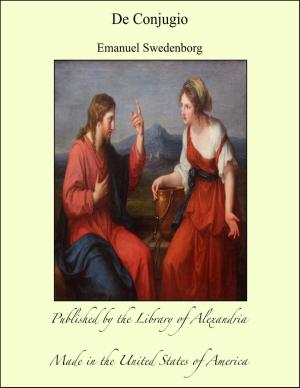The Chronicle of the Norman Conquest from the Roman de Rou
Nonfiction, Religion & Spirituality, New Age, History, Fiction & Literature| Author: | Master Wace | ISBN: | 9781465562678 |
| Publisher: | Library of Alexandria | Publication: | July 29, 2009 |
| Imprint: | Library of Alexandria | Language: | English |
| Author: | Master Wace |
| ISBN: | 9781465562678 |
| Publisher: | Library of Alexandria |
| Publication: | July 29, 2009 |
| Imprint: | Library of Alexandria |
| Language: | English |
A detailed narrative of events so interesting as those which preceded and attended the conquest of England by William, duke of Normandy, needs little apology for its introduction, for the first time, to the english reader. If his feelings are at all in unison with those of the translator, he will welcome the easy access thus afforded to this remarkable chronicle;—by far the most minute, graphic, and animated account of the transactions in question, written by one who lived among the immediate children of the principal actors. The historian will find some value in such a memorial of this great epoch in english affairs;—the genealogist will meet in it some interesting materials applicable to his peculiar pursuits;—and the general reader will hardly fail to take a lively interest in such an illustration of the history of the singular men, who emerged in so short a time from the condition of roving barbarians into that of the conquerors, en noblers, and munificent adorners of every land in which they settled, and to whom the proudest families of succeeding ages have been eager to trace the honours of their pedigree. In speaking of the numbers which composed William's invading fleet, Wace says, —jo oï dire a mon pere, Bien m'en sovint, mais varlet ere; and it has been in consequence supposed that he intended to represent his father as a cotemporary and even an eye witness of the expedition. It will, however, be easily seen that this is extremely improbable. Wace lived and wrote as late as at least 1173, and could hardly have been born earlier than the commencement of the eleventh century. The assumption that his father was adult in 1066 would give to the latter an improbable age at his son's birth, and a very great one at the time when the 'varlet' could have listened to the tale of his parent's experience. The probability, therefore, is, that Wace only meant to refer to his father as a suitable authority, conveying information which he might easily have derived from living among those who actually shared in the expedition. It is clear, however, that in another place, p. 115, he directly asserts his own communication with persons adult at the conquest; for, in speaking of the comet that preceded it, he refers to the report of eye-witnesses as his personal authority
A detailed narrative of events so interesting as those which preceded and attended the conquest of England by William, duke of Normandy, needs little apology for its introduction, for the first time, to the english reader. If his feelings are at all in unison with those of the translator, he will welcome the easy access thus afforded to this remarkable chronicle;—by far the most minute, graphic, and animated account of the transactions in question, written by one who lived among the immediate children of the principal actors. The historian will find some value in such a memorial of this great epoch in english affairs;—the genealogist will meet in it some interesting materials applicable to his peculiar pursuits;—and the general reader will hardly fail to take a lively interest in such an illustration of the history of the singular men, who emerged in so short a time from the condition of roving barbarians into that of the conquerors, en noblers, and munificent adorners of every land in which they settled, and to whom the proudest families of succeeding ages have been eager to trace the honours of their pedigree. In speaking of the numbers which composed William's invading fleet, Wace says, —jo oï dire a mon pere, Bien m'en sovint, mais varlet ere; and it has been in consequence supposed that he intended to represent his father as a cotemporary and even an eye witness of the expedition. It will, however, be easily seen that this is extremely improbable. Wace lived and wrote as late as at least 1173, and could hardly have been born earlier than the commencement of the eleventh century. The assumption that his father was adult in 1066 would give to the latter an improbable age at his son's birth, and a very great one at the time when the 'varlet' could have listened to the tale of his parent's experience. The probability, therefore, is, that Wace only meant to refer to his father as a suitable authority, conveying information which he might easily have derived from living among those who actually shared in the expedition. It is clear, however, that in another place, p. 115, he directly asserts his own communication with persons adult at the conquest; for, in speaking of the comet that preceded it, he refers to the report of eye-witnesses as his personal authority















